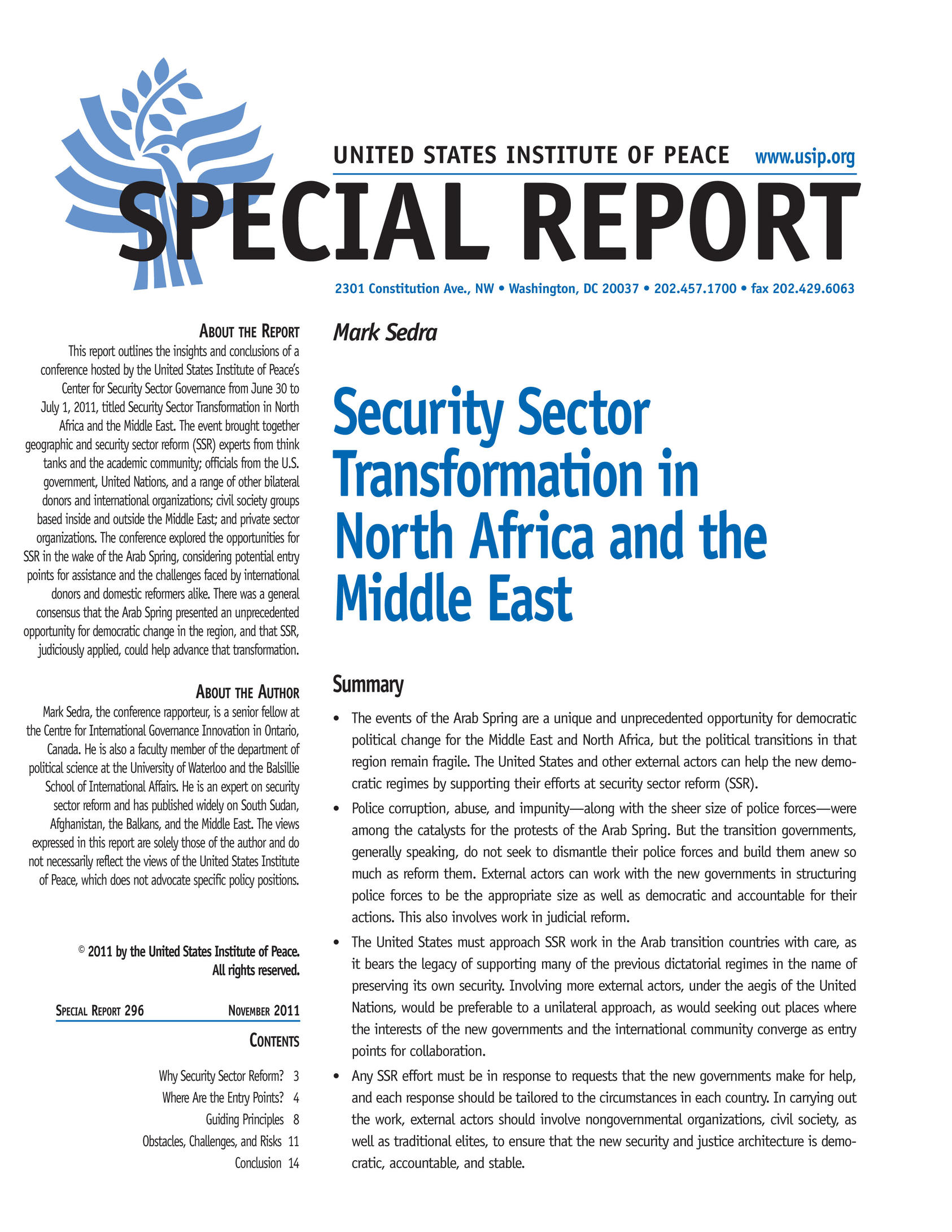International efforts to help Arab transition countries with security reform must be driven by country requests, involve many partners, and be tied to broader aims for justice, stability, and economic development.

Summary
- The events of the Arab Spring are a unique and unprecedented opportunity for democratic political change for the Middle East and North Africa, but the political transitions in that region remain fragile. The United States and other external actors can help the new democratic regimes by supporting their efforts at security sector reform (SSR).
- Police corruption, abuse, and impunity—along with the sheer size of police forces—were among the catalysts for the protests of the Arab Spring. But the transition governments, generally speaking, do not seek to dismantle their police forces and build them anew so much as reform them. External actors can work with the new governments in structuring police forces to be the appropriate size as well as democratic and accountable for their actions. This also involves work in judicial reform.
- The United States must approach SSR work in the Arab transition countries with care, as it bears the legacy of supporting many of the previous dictatorial regimes in the name of preserving its own security. Involving more external actors, under the aegis of the United Nations, would be preferable to a unilateral approach, as would seeking out places where the interests of the new governments and the international community converge as entry points for collaboration.
- Any SSR effort must be in response to requests that the new governments make for help, and each response should be tailored to the circumstances in each country. In carrying out the work, external actors should involve nongovernmental organizations, civil society, as well as traditional elites, to ensure that the new security and justice architecture is democratic, accountable, and stable.
- SSR work should be linked to the broader goals of justice, political stability, and economic development, which lay at the heart of the Arab Spring protests; doing so could improve relations between the United States and the Middle East.
About the Report
This report outlines the insights and conclusions of a conference hosted by the United States Institute of Peace’s Center for Security Sector Governance from June 30 to July 1, 2011, titled Security Sector Transformation in North Africa and the Middle East. The event brought together geographic and security sector reform (SSR) experts from think tanks and the academic community; officials from the U.S. government, United Nations, and a range of other bilateral donors and international organizations; civil society groups based inside and outside the Middle East; and private sector organizations.
The conference explored the opportunities for SSR in the wake of the Arab Spring, considering potential entry points for assistance and the challenges faced by international donors and domestic reformers alike. There was a general consensus that the Arab Spring presented an unprecedented opportunity for democratic change in the region, and that SSR, judiciously applied, could help advance that transformation.
About the Authors
Mark Sedra, the conference rapporteur, is a senior fellow at the Centre for International Governance Innovation in Ontario, Canada. He is also a faculty member of the department of political science at the University of Waterloo and the Balsillie School of International Affairs. He is an expert on security sector reform and has published widely on South Sudan, Afghanistan, the Balkans, and the Middle East. The views expressed in this report are solely those of the author and do not necessarily reflect the views of the United States Institute
of Peace, which does not advocate specific policy positions.